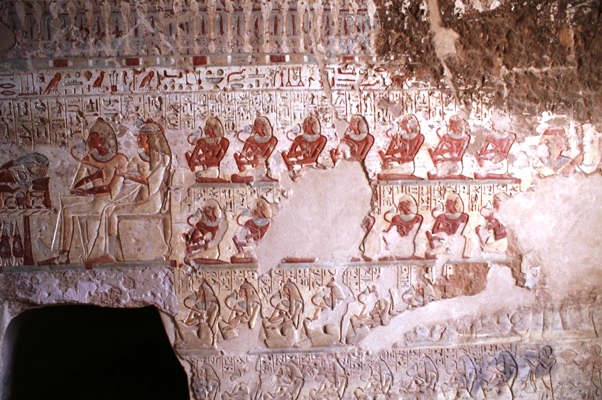
2025 Sally L.D. Katary Memorial Lecture
The 2025 Sally L.D. Katary Memorial Lecture will be held 31 May. For details, Click Here
JSSEA 50 now online
Members can now log in and download a colour PDF copy of JSSEA 50 (2023-2024)
There is also an index of volumes I to XLVIII now available and freely downloadable from here.

Oneiromancy, or dream interpretation, is one of the divinatory arts with the longest history
of attestation in ancient Egypt, from at least the Ramesside to the Roman Period. Regarded
by the Egyptians as a science, this discipline is not only indirectly attested in official or daily-
life documents, but also in specimens of the technical literature governing it: dream books.
In these texts, thousands of dreams were described and interpreted as signs of events that
were expected to befall the dreamer.
With dream books known from the New Kingdom, the Late, and the Graeco-Roman Period,
it is possible to gauge both the continuity and the developments in the tradition of these
manuals, including its twilight during Coptic Late Antiquity. Not only do these texts inform
us about the theory and practice of oneiromancy, but they also offer material for the study
of the contemporary society and psychology: for they include information on the way the
ancient Egyptians categorized the world of dreams, as well as on the hopes and anxieties
that they faced in their daily existence, and which are illustrated in the predictions
interpreting each dream.
About the Speaker:
Luigi Prada is Assistant Professor of Egyptology at Uppsala University, Sweden. He was
educated in both Egyptology and Classics, firstly in Italy and then in Oxford. Within
Egyptology, he specialises in textual, religious, and cultural-historical studies, with particular
focus on the Late and Graeco-Roman Periods. Previously, he has held academic positions in
the Egyptology departments of Heidelberg, Copenhagen, and Oxford University, where he
remains a Research Associate in Egyptology. He is active in the field, both in Egypt—as
Assistant Director of the Oxford / Uppsala epigraphic team working in partnership with
Egyptian colleagues in Elkab—and in the Sudan. He is also President of the Society of Friends
and Collaborators of the Museo Egizio in Turin (ACME).
Powered by iCagenda